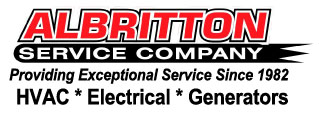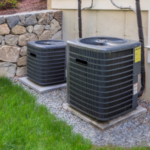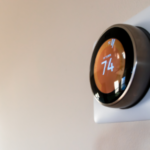
Sweating All Summer? Why Your HVAC System Disappoints
HVAC systems can seem like an intimidating and mind-boggling problem to many homeowners. There are a multitude of reasons why an AC unit can struggle, as well as different symptoms one problem can have. Various problems also have the same symptoms.
Although AC units seem complicated, there are some common problems with easy to spot signs. Read these tips for a better understanding of common AC issues.
Fall Leaves Will Gum Up the Works in an AC Unit
Like any contaminants, fall leaves have the potential to cause malfunctions and perhaps a full unit replacement. Debris can block airflow, making the unit run less efficiently, which means higher energy bills and a shortened lifespan for the unit. Worse, if the fall leaves act as a sponge for the humidity that may be trapped in the condensate drain pan inside the unit, the combination can result in mold and rust.
Advanced cases of rust can result in irreparable damage. Mold in the air circulation system can also cause damage as well as health issues. Homeowners shouldn't make the mistake of underestimating the dangers of fall leaves, and consider scheduling seasonal unit cleanings, buying a unit cover for when it is not in use, and frequently raking up around the unit.
Make Sure the HVAC Unit Is a Perfect Fit for the Home
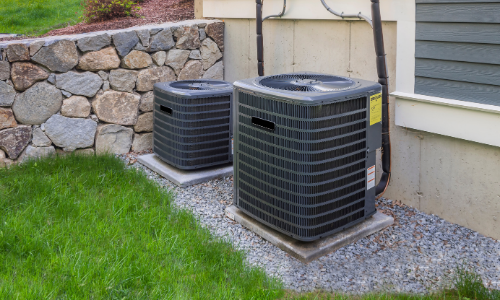
Units that are either too big or too small can be problematic. Incorrect unit sizes can mean higher energy bills, frequent unit breakdowns, and other problems.
If a unit is too big, homeowners might notice that:
- The AC unit turns and off too frequently - When the AC unit is meant for a bigger house, it can cool a smaller house much more quickly. This may seem like a great way to get the job down faster, but an AC unit that starts and stops can cause problems, namely higher costs and humidity issues.
- There is too much humidity in the air - In humid regions, an important AC function is to remove excess humidity through the evaporator coil and condensate drain. Unfortunately, these features are not engaged unless the unit runs uninterrupted for enough time. When the AC turns off shortly after turning on, it never stays on long enough to remove excess humidity.
Inversely, if a unit is too small, homeowners will see:
- Long periods of AC cooling - Unsurprisingly, long periods of AC cooling mean the exact opposite of shorts burst of AC cooling. If the AC needs to work continuously for too long, it is clear that the unit is too small for the house.
- The AC takes too long to cool the house down - AC design has been revamped in recent years. Whereas AC units used to cool down a space quickly, the goal nowadays is to gradually gain and then maintain the ideal temperature. However, if a unit takes too long or even fails to cool a house, homeowners should note that their house is too big of a job for that unit.
Besides these signs, frequently calling for repairs can also indicate an issue with size, as too large and too small of units work too hard and therefore can fail earlier than they should.
A Problem Thermostat
Sometimes, an AC issue can be with the thermostat and not the unit. As some of the symptoms overlap, homeowners should check both the thermostat and the unit when identifying the problem.
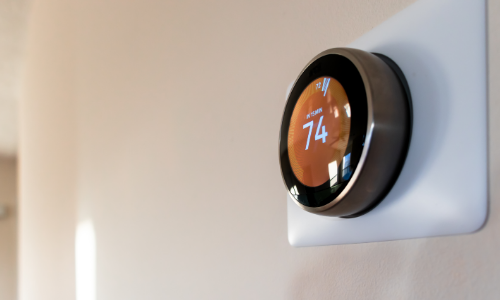
Signs of a faulty thermostat are:
- Short cycling or never stops running - Something as simple as dirt inside the thermostat can interfere with the AC. If an AC unit shorts the cooling cycles or never stops running, try cleaning the thermostat by first turning off the thermostat breaker and then removing the cover. Compressed air cans can be used to blast away grime in the thermostat that may be interfering with AC functionality.
- AC won't turn on - If the AC does not turn on, issues like dead batteries or a dirty thermostat may be the cause. Homeowners should follow the same cleaning instructions above to see if the issue is with the thermostat.
- The room never reaches the desired temperature - The thermostat may be to blame if an AC struggles to reach the set temperature. A poorly installed or dirty thermostat will have trouble correctly reading the room temperature. Similarly, if a thermostat is located in a bad spot, such as next to a draft or in direct sunlight, it can misread the room's temperature.
If there are issues with an AC unit, looking over the thermostat can be a good first step. However, if the thermostat has been checked out and a problem persists, it's time to call an HVAC expert for a more thorough investigation and maintenance.
Why Albritton Service Co?
With 38 years of experience, Albritton Service Co out of Reston, LA is a trusted name in HVAC services. This family-owned business values their community, as seen with their 24/7 emergency service and 100 percent satisfaction guaranteed. Call Albritton Service Co to have one of their licensed and insured technicians provide expert HVAC maintenance.
Distribution Links +
- wicz.com
- ktvn.com
- fox21delmarva.com
- wboc.com
- snntv.com
- rfdtv.com
- wfmj.com
- htv10.tv
- central.newschannelnebraska.com
- metro.newschannelnebraska.com
- southeast.newschannelnebraska.com
- midplains.newschannelnebraska.com
- northeast.newschannelnebraska.com
- plattevalley.newschannelnebraska.com
- panhandle.newschannelnebraska.com
- rivercountry.newschannelnebraska.com
- wrde.com
- wpgxfox28.com
- wdfxfox34.com
- lifestyle.mykmlk.com
- wtnzfox43.com
- lifestyle.3wzfm.com
